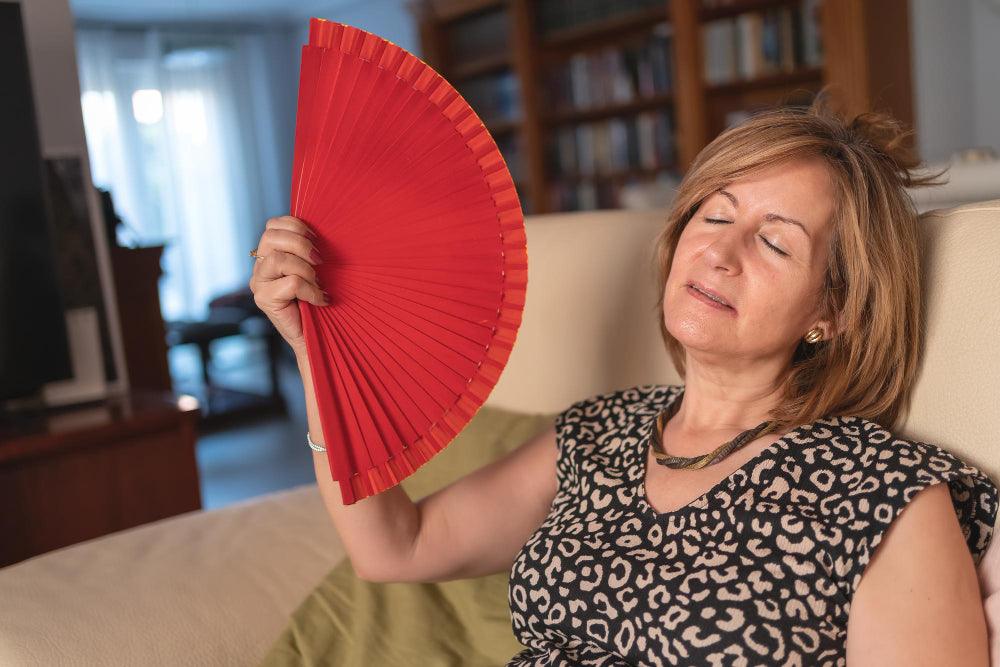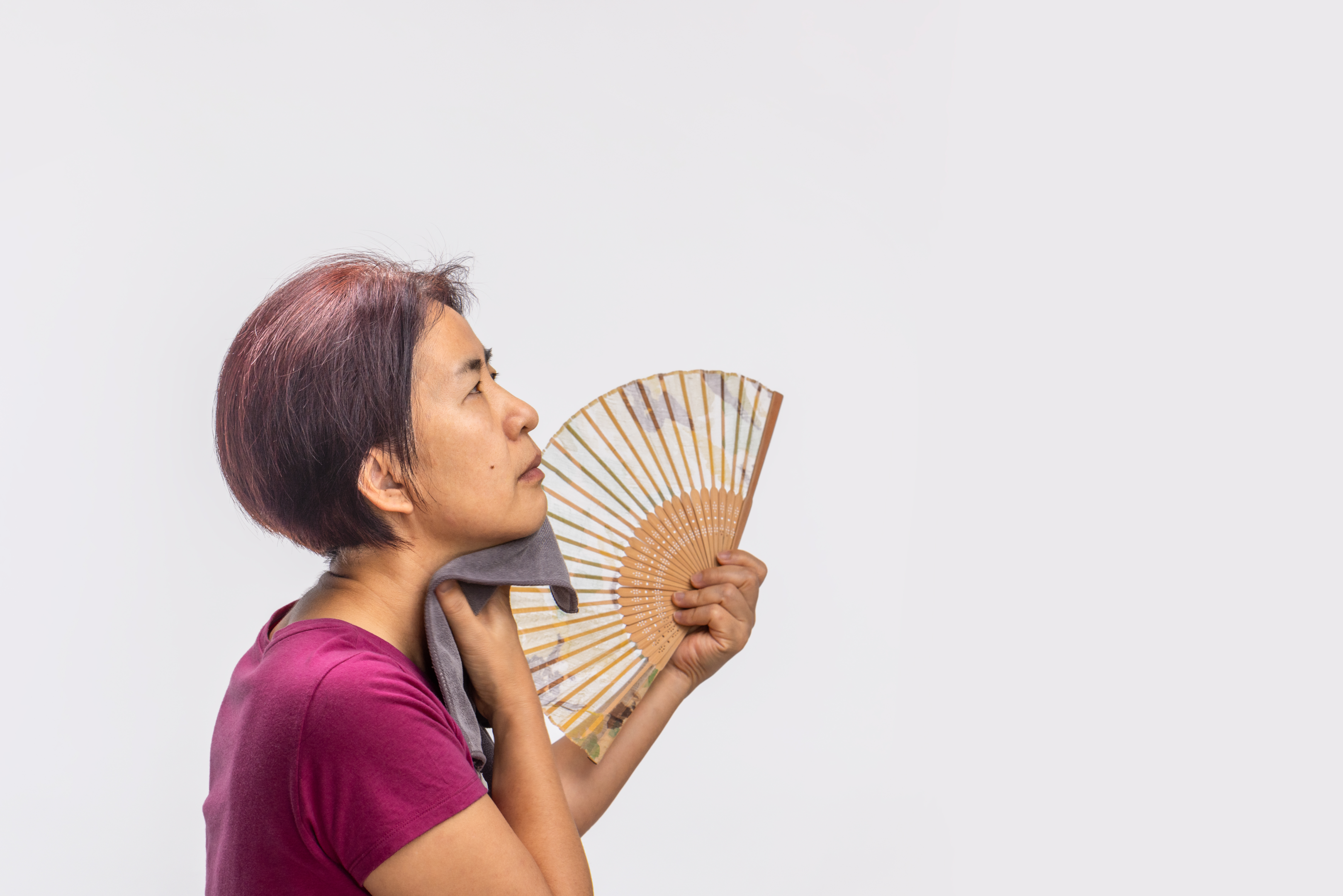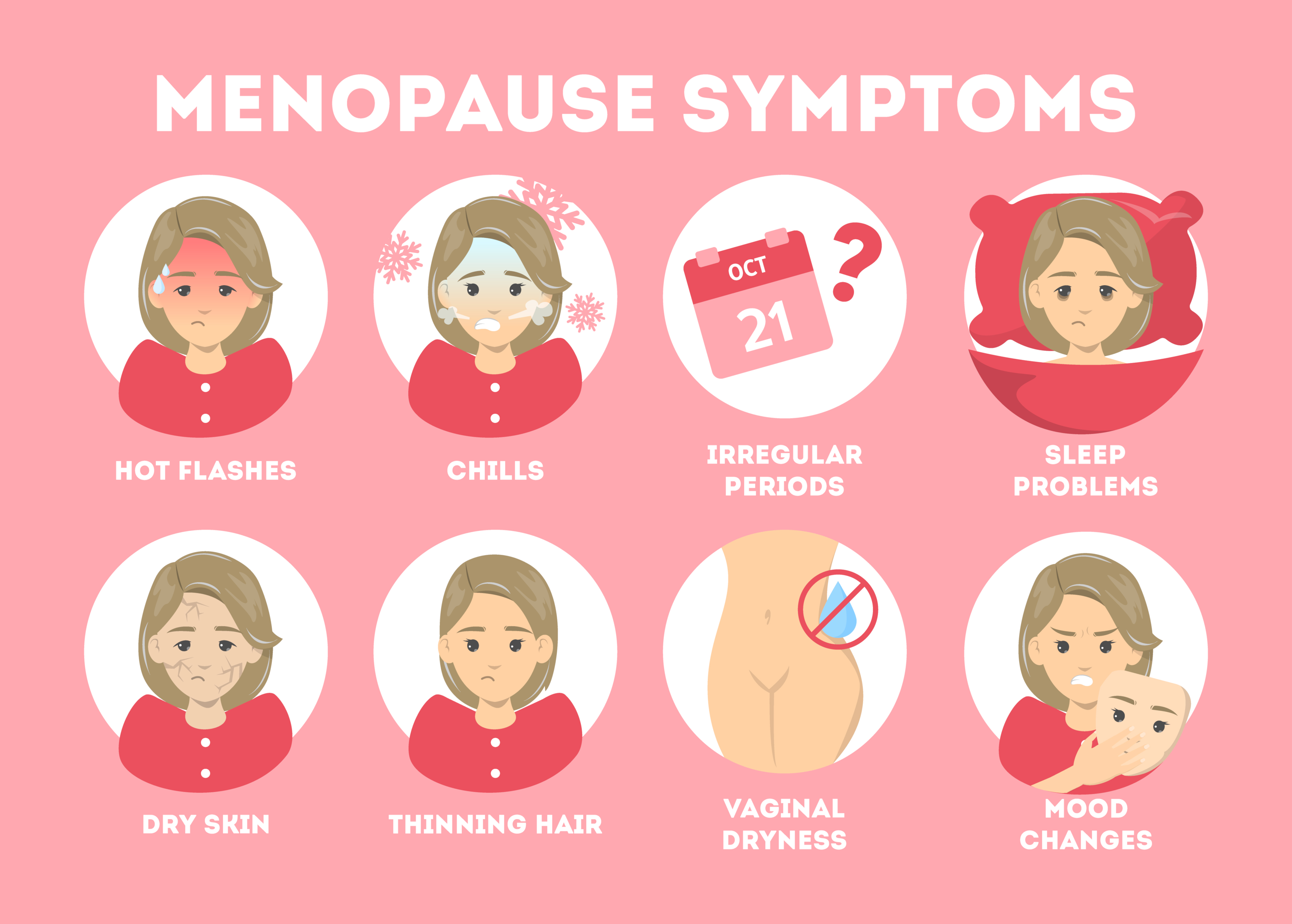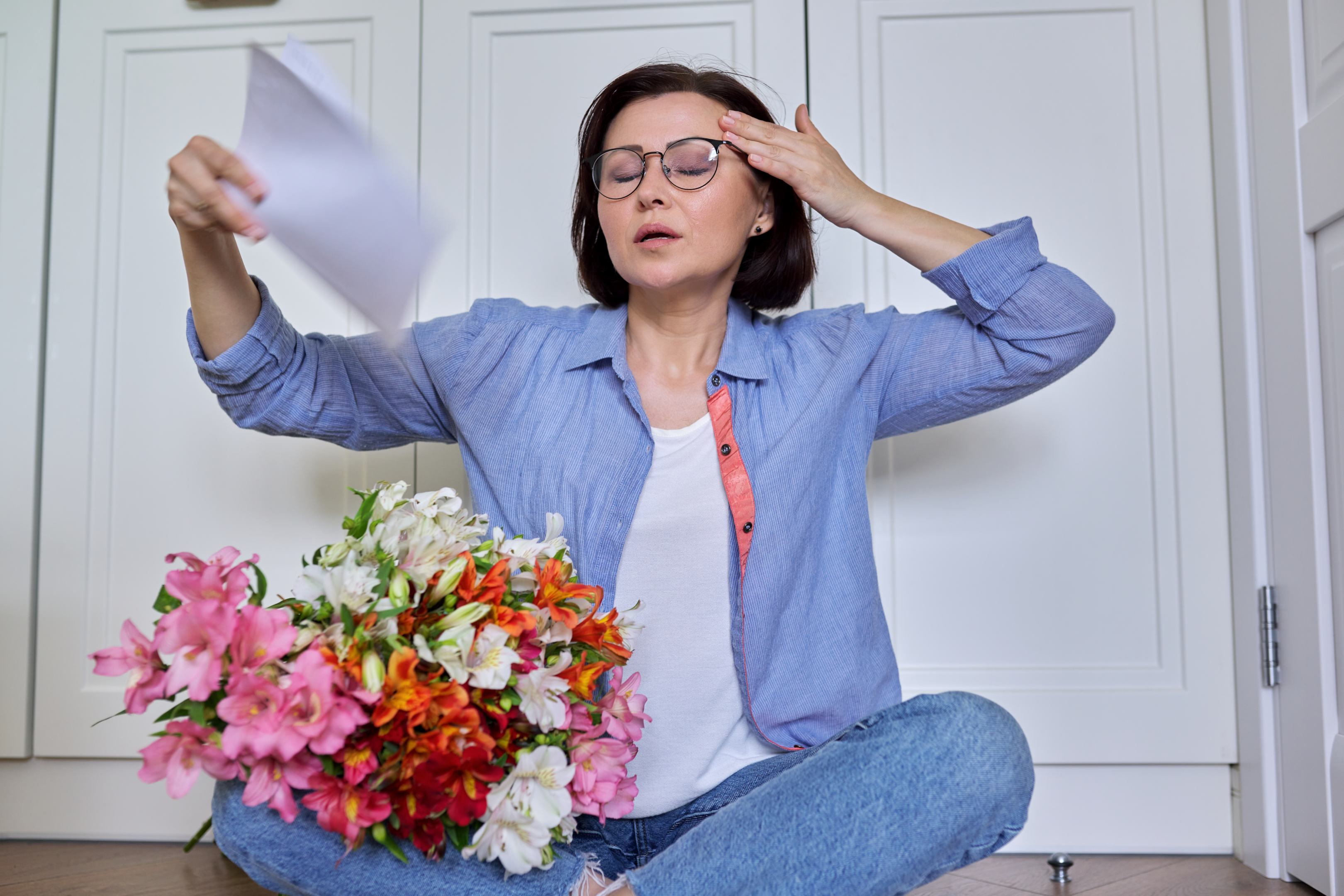Getting relief from hot flashes



Hot flashes are common symptoms of menopause which usually feel like an intense burst of heat along with sweating and red, flushed skin. It might naturally fade with age or, in some cases, stop after the post-menopausal stage.
Menopause is the stage of your life where the menstrual period ends. This results in hormonal change and leads to various signs and symptoms like vaginal dryness, hot flashes, night sweats, mood swings and insomnia.
Hot flashes don't have a clear cause. Despite this, there are strategies to control them.

Hot flashes occur during the menopausal transition period and link with other menopausal symptoms. In many women, hot flashes occur after the post-menopausal period, which increases body temperature and also causes other health conditions.
Other menopausal symptoms
Sleep disturbances
Severe hot flashes
Mood symptoms like mood swings
Increased risk of breast cancer
Many women experience breathing issues
Weight gain
Menopause-associated vasomotor symptoms
Flashes and night sweats
Therefore treating menopausal symptoms can also treat hot flashes.
A hot flash can be triggered by a variety of things. Numerous situations in everyday life could cause a hot flash. Following are some conditions in which you can experience hot flashes.
Hot and spicy foods
Outings in sunny weather
Drinking too much alcohol
In taking too much caffeine
Wearing tight clothes
Stress and anxiety
Heart disease
Breast cancer survivors
High blood pressure
Liver failure
As seen above, your dietary supplements can affect hot flashes.
Heat is another factor that might cause hot flashes. When it's hot outside or if you become overheated during an activity, you may suffer more hot flashes. Don't exercise in hot weather because it can aggravate hot flashes.

It is believed that hot flashes caused by menopause end after 6 to 24 months. However, in certain cases, hot flashes and night sweating also continue for a longer duration. Each woman has a unique experience with hot flashes. However, your hot flashes might be more noticeable the quicker you go from having regular periods to not having any at all.
Surgery-induced menopause can cause significant hot flashes in some premenopausal women. Hot flashes can result from hormonal treatments like tamoxifen and medical menopause brought on by chemotherapy. Hot flashes can range in severity from mild to severe overall.
Although there is no known treatment for hot flashes, non-hormonal therapies and lifestyle adjustments may be able to help you relieve hot flashes. Here are eight all-natural methods for managing hot flashes.
Following are the various home remedies for hot flashes

Consistent exercise (three or four times a week) may help reduce the discomfort you experience from hot flashes. Your heat flashes may be shorter, less severe, and occur less frequently if you engage in physical exercise. Women who maintain a regular workout schedule say they can manage hot flashes more easily.
Additionally, exercise might help with other menopause-related difficulties you might experience.
Your outlook and response to hot flashes may both be enhanced by physical activity. This might make dealing with them a little bit simpler.
Hot flashes might be reduced by consuming certain foods high in water, such as bananas, watermelons, carrots, and tomatoes. Changing your diet can help you stay hydrated and cool down your body temperature. The following are some fruits and vegetables that can help to reduce the intensity of hot flashes.
Whole soybeans and a plant-based diet could also aid in reducing hot flashes. Isoflavones are found in soybeans. Some people's gut flora convert them to equol, a chemical that resembles oestrogen. This is true, particularly when consumed as part of a vegetarian or vegan diet. Equol might reduce hot flashes for certain people.
You might need to limit your intake of hot, spicy, and sweet meals to stop heat flashes. Blood vessels might enlarge when you season your food with chilli powder, peppers, and other spices. The result could be flushing and sweating.
Additionally, hot flashes are more likely to occur during blood sugar rises. Higher blood sugar may be more likely to result in vasomotor symptoms, especially if you are of African descent, in the early stages of menopause, or both.
Try to take preventative measures to stay cool, including what you wear. Dress in a way that will keep you cool and reduce the severity of hot flashes. Wear loose-fitting layers.
You can get rid of them when the heat is on. Choose fabrics that allow air to pass through them, such as cotton, rayon, and linen. You might keep drier by dressing in clothing that wicks away moisture.
Hormone therapy can be quite helpful because hot flashes might be caused by low oestrogen levels. You might be able to take oestrogen by itself or you might need to take progesterone along with it, depending on your particular circumstances.
You can take oestrogen by itself if you've undergone a hysterectomy. However, you should also take progesterone and oestrogen if you still have a uterus. You can lessen your risk of developing endometrial cancer by taking progesterone.
View our range of HRT products and treatments here.
Following are the medical treatment options
Hot flashes can occasionally be treated with low dosages of antidepressants, particularly selective serotonin reuptake inhibitors.
Women may have a 50–60% reduction in hot flashes when taking gabapentin. However, it has side effects, including headaches, tiredness, and dizziness.
It can be present in drugs like Neurontin and Gralise. Because of the possible negative effects, some women choose not to consider this alternative.
Other alternative therapies for effective treatment
Herbal supplements like black cohosh
Dong Quai
To learn more about menopause and how to manage symptoms, read through our information page here.










Plus get the inside scoop on our latest content and updates in our monthly newsletter.